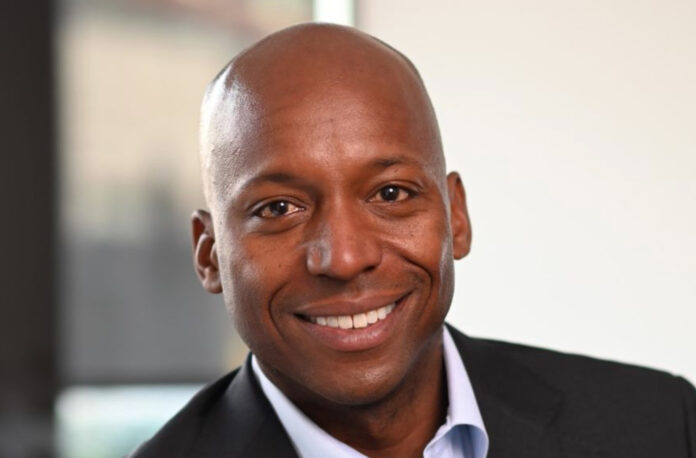
The Mazzoni Center has appointed Sultan Shakir as its new President and Executive Officer, following a 12-month search. Shakir, a Philadelphia native, is currently executive director of SMYAL, an LGBTQ youth services organization in Washington, DC. He will start his role at Mazzoni Center on January 10, 2022.
“The Board of Directors is excited to welcome Sultan Shakir to the Mazzoni Center,” said Nu’Rodney Prad, Mazzoni Center Board President. “Our diverse search committee did an outstanding job recruiting Sultan for his talent, leadership, and inclusive lens. This committee represented various voices to ensure we selected an individual to guide Mazzoni Center’s continued successes in providing services and resources to our communities.”
Executive search firm Kevin Chase added, “We were intentional about making sure frontline staff, clients, and community partners were front and center in every aspect of the process.”
Shakir’s hire comes after several years of staff and organizational shakeups. In April 2017, former Medical Director Dr. Robert Winn resigned following allegations of sexual impropriety with patients. Winn’s departure was quickly followed by those of former CEO Nurit Shein — whom some staffers alleged did not act quickly enough on Winn — and Board President Dr. Jimmy Ruiz.
In September 2017 the Mazzoni Center staff formed a union under SEIU Healthcare PA and in 2019 negotiated a contract that included paid leave for gender-affirming surgeries, higher wages, and a Labor-Management Committee to increase collaboration between staff and leadership.
The last permanent CEO, Lydia Gonzalez Sciarrino, resigned in October 2018 after seven months amid complaints that she was not a member of the LGBTQ community. Former COO Ron Powers also resigned at that time. Since then, an interim leadership team including Executive Medical Officer Dr. Nancy Brisbon and Executive Operations Officer Alecia Manley has overseen the organization while a search for a new leader was underway. In total, it has been over 3 years since the organization last had a permanent leader.
“We are so grateful to the community, staff, and board for providing us the opportunity to lead Mazzoni Center during this period of transition,” Brisbon and Manley told PGN in a statement. “As the interim leadership team, our goal over the past three years has been to stabilize the organization, and to build a strong, sustainable foundation. This included collaborating with staff to enact a union contract, prioritizing racial justice initiatives, cultivating a diverse leadership team, and maintaining the safety of staff and clients throughout the COVID-19 pandemic. We are excited to welcome Sultan Shakir as our new President and Executive Officer, and we believe his dynamic and community-focused leadership style will ensure Mazzoni Center remains a valuable resource to the communities we serve.”
In addition to his work at SMYAL, Shakir had two roles at Human Rights Campaign, first as a Regional Field Director working on the DC and Maryland marriage equality campaigns, and then as a Program Director where he led the Historically Black Colleges and Universities Project to make campuses safer and more inclusive for LGBTQ people.
PGN spoke with Shakir about his background, the importance of LGBTQ healthcare, and his plans for guiding the organization after several years of change.
How do you think your lived experience being from Philadelphia and being in the LGBTQ community is going to impact your work at Mazzoni Center?
I think being a Black queer man who was raised Muslim growing up in Philadelphia really helped shape my understanding of what the community goes through in terms of how people see us, how we see ourselves, the closet that we live in sometimes, the effects that religion has on us both positive and negative, and the effects that white supremacy has on us as a people; and it really gives me a good insight into the struggles that the queer and trans community are facing right now, particularly under Covid. It’s hard for everybody. It was really hard for me growing up as a queer Black Muslim trying to navigate who the world was telling me I should be, who I wanted to be, the hopes and dreams I had for myself of being an out person, and hearing that that wasn’t okay. All of that shaped the compassion that I have for people now and the belief that we are our best selves when we are allowed to be who we are.
You’ve said that “the best decisions are those informed by the people most affected by them.” How are you planning to put that idea into practice?
My plan is to start this work just by listening. Listening to the staff, listening to the community, listening to the board, and really hearing what it is that has people love the Mazzoni Center so much and what it is that people need more of or less of from the Mazzoni Center. I feel like my job is not to come in and tell the community or the organization what needs to happen. It’s really to find out from people what needs to happen and then using my experience running a direct service LGBTQ organization, expanding that organization, and doing systems change work for the organization to help provide greater support to the queer trans and ally community across the Philadelphia region.
There’s been a shift in acceptance that physical health isn’t the only important part of healthcare. Housing, employment, discrimination, all of those things are wrapped into healthcare too. How do you feel about the importance of making sure that the people you serve not only have good healthcare but also have housing, employment and things like that?
I think if you look at all of the work that I’ve done in my career, it’s all been about how to holistically support people and recognizing the fact that we’re all living in a system that has deep roots in white supremacy, deep roots in oppression and inequality, and so it’s really important to look at how the Mazzoni Center can provide the services it provides but also work with some of the really strong ally organizations in the Philadelphia region to ensure that the individuals who are coming to the Mazzoni Center also have access to the other areas of support that are critical to their health and well being like housing, like employment, and some of the other really basic needs that people have.
A lot of people think we already have a national law protecting LGBTQ people from discrimination, but we don’t. We have one in this city, but not in this state. There are people who go to Mazzoni Center who might live in areas that don’t have those nondiscrimination laws. How do we make people, generally, believe that LGBTQ discrimination still happens?
I think it’s important for us as a community to look at the discrimination that not only the LGBTQ community faces, but also the Black community, other religious minorities, and ethnic minorities, and to take a systemic look at the discrimination that the community as a whole is facing and figuring out how the Mazzoni Center can be a part of dismantling that. So whether it’s Mazzoni Center doing public education and community engagement around LGBTQ nondiscrimination laws, or whether it’s Mazzoni Center providing support for dismantling white supremacy, I think the Mazzoni Center has a role in ensuring that the community as a whole is advancing socially. That really is a key part of health and wellness.
It’s been a rough couple of years for Mazzoni Center in different ways; a lot of changes and turmoil happened within the staff and the organization. Do you want to talk about emerging from those changes?
It’s clear that the Mazzoni Center has had a challenging path. The thing that I find really incredible, and why I decided to apply for this job and why I’m super excited to come into this position, is that even through the leadership drama that happened, the staff at the Mazzoni Center, particularly the frontline staff, have still been amazing at supporting the community through what the LGBTQ community was already going through, and then adding Covid and everything that happened last year that elevated the struggles that Black people were having and the increase in awareness around the Black Lives Matter movement. Even through all that, the Mazzoni Center still had an incredible response to Covid by making sure community members were vaccinated and that people were comfortable while they were doing it. There weren’t lines outside of people standing in the cold. When I got my vaccine I was standing in the rain, and we had to take care of other people who were tired of standing in line for hours in the cold and the rain. The Mazzoni Center really took a community-based approach for how to support the community through Covid. The Mazzoni Center was still doing that forward thinking, advanced work even through the drama, and even after the effects of the drama. So I am just incredibly in awe of the perseverance of the staff, the resilience of the staff, and I really look forward to hearing the effects of the drama and the trauma, understanding how that trauma still lives in people, and using that to chart a path forward that allows people to heal and do more great work.
You have a background in music, and you studied at a conservatory at Johns Hopkins University. While you said that you left music to do your advocacy, how do you think your music background will help you in your new role?
I thought about how my music background will help me in this role. The great thing about studying jazz music is you’re a part of a team, you’re following the music on the page, but you’re encouraged to do your own thing and be your own person and put your own stamp on it. And I think that is what I encourage staff to do in any organization that I work in, is to be a part of the team, play the chords that we’re all playing, but do it your way. Bring your flair, your funk, your soul and throw it in, and that’s really what makes really amazing music and makes a really diverse and amazing organization.
